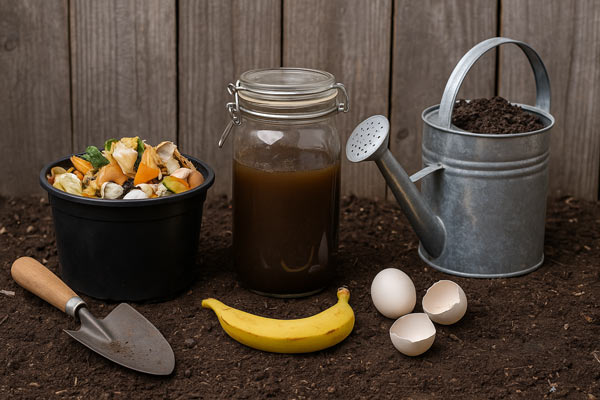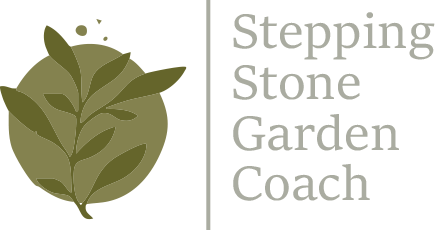 If your tomatoes are looking tired or your basil’s lost its bounce, don’t reach for a synthetic fertilizer just yet. Florida’s summer fertilizer blackout may restrict what you can buy at the store—but your kitchen holds everything you need to give your edible garden a gentle, effective boost.
If your tomatoes are looking tired or your basil’s lost its bounce, don’t reach for a synthetic fertilizer just yet. Florida’s summer fertilizer blackout may restrict what you can buy at the store—but your kitchen holds everything you need to give your edible garden a gentle, effective boost.
In this post, we’ll explore how to make your own nutrient-rich fertilizers using scraps, compost, and natural brewing techniques—all tailored to the unique needs of Central Florida gardens.
Compost: The Gold Standard
A healthy kitchen garden begins with rich soil. Compost is your best friend here—full of slow-release nutrients, beneficial microbes, and organic matter that improve both fertility and moisture retention (especially important in our sandy Florida soils).
What to compost:
-
Fruit and veggie scraps
-
Coffee grounds
-
Crushed eggshells
-
Garden trimmings
-
Shredded paper or leaves (carbon)
What to avoid:
-
Dairy, meat, oils
-
Citrus peels in large quantities (can slow down microbes)
If you’re new to composting, a simple covered bin near your kitchen door will do the trick. Stir regularly, keep it moist (like a wrung-out sponge), and within weeks, you’ll have black gold.
Compost Tea: A Brew for the Beds
Compost tea is like a probiotic drink for your soil—teeming with life and perfect for quick uptake by leafy greens and herbs.
Basic Compost Tea Recipe:
-
1 part finished compost
-
5 parts non-chlorinated water (rainwater is best)
-
Optional: 1 tablespoon molasses to feed the microbes
Let it steep for 24–48 hours in a bucket, stirring a few times. Strain out the solids and pour it right at the base of your plants. Avoid getting it on edible leaves if you plan to harvest the same day.
Pro tip: Apply early in the morning or just before sunset to avoid stressing your plants in the midday sun.
DIY Fish Fertilizer (Without the Smell)
Native Americans used fish scraps to boost crop yields for centuries. You can do the same with leftover fish heads or bones from a seafood dinner.
Fermented Fish Fertilizer Recipe:
-
2 parts fish scraps
-
1 part brown sugar or molasses
-
Optional: 1 part lactic acid bacteria serum (or a spoonful of yogurt to start fermentation)
Place it in a sealed container for 2–3 weeks. Once the odor mellows and the mixture breaks down, dilute it (1 tablespoon per gallon of water) and apply to the root zone. This is particularly great for fruiting plants like tomatoes, eggplants, and peppers.
Worm Castings: A Gentle Powerhouse
If you’re ready to take your soil health to the next level, consider starting a worm bin. Red wigglers transform kitchen scraps into castings—a rich, odorless soil amendment packed with nutrients and microbes.
Sprinkle a handful of worm castings into transplant holes or mix into the top layer of your raised beds. You can also brew them into tea, just like compost.
Banana Peel & Eggshell Blend: The Quick Fix
Need a fast potassium and calcium boost for your peppers or squash? Blend banana peels with dried, crushed eggshells and water to make a quick, mineral-rich slurry.
Apply near the base of your plants for a mild nutrient top-up.
Final Tips for Florida Gardeners
Don’t overdo it. Too much fertilizer (even organic) can stress plants in our summer heat. Think of it as seasoning, not soup.
Water deeply after applying homemade fertilizers to help nutrients soak in.
Observe and adjust. Yellow leaves might mean a nitrogen deficiency. Poor fruiting could signal a phosphorus need.
In the Florida garden, the best fertilizer is the one you make yourself—slow, steady, and in harmony with the rhythms of your soil.
Got a go-to homemade garden brew? Tag me on Instagram @steppingstonegc. Happy feeding!
